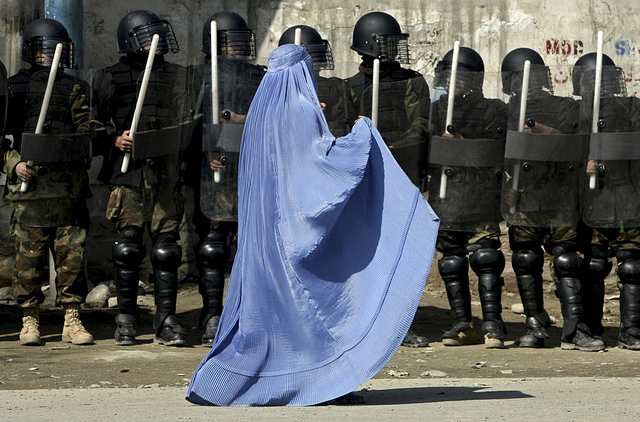- About
- Topics
- Picks
- Audio
- Story
- In-Depth
- Opinion
- News
- Donate
- Signup for our newsletterOur Editors' Best Picks.Send
Read, Debate: Engage.
| January 15, 2018 | |
|---|---|
| topic: | Good Governance |
| tags: | #copyrights, #Ministry of Information and Culture (MoIC), #literary, #World Bank |
| located: | Afghanistan |
| by: | Shadi Khan Saif |
On Fridays, the weekly off day in Afghanistan, book lovers stroll through the old Kabul Bazaar, where publishers and distributers have long been offered a variety of old and new books on history, philosophy, poetry, religion, anthropology… in Dari (an Afghan dialect of Persian), Pashto, Persian, Arabic, English and other languages.
The well-off members of the society take deep pride in showcasing their collections of classic, even some very antique, as well as the newest and best-sellers. The country’s President Mohammad Ashraf Ghani, a former World Bank economist-turned-politician, is known for his keen interest, love and long hours of reading. His power-sharing Chief Executive Officer Abdullah Abdullah has a lovely star shaped bookshelf in his office where he meets and greets foreign dignitaries in the backdrop of a well-preserved collection.
Thanks to the relative peace over past decade-and-half, and the advent of modern ways and means to access information, more and more books are being written, translated and published inside Afghanistan; giving birth to the industry employing thousands of people.
Dr. Ajmal Aazim, deputy president of the Afghanistan Publishers’ Association, told FairPlanet, the industry has been witnessing a positive change for the past many years now. He said the improvement came when former president Hamid Karzai inked the law of copyright. Since 2008 copyright in Afghanistan has been governed by the law on the support the right of authors, composers, artists and researchers.
“The law has encouraged writers and publishers to a great deal; it has not only paved the way for more publication but also helped the country participate in various international book fairs”, Aazim said. The APA deputy however, regretted that copyright violations and the fact that book reading trend was not flourishing the way it should have, writers and publishers are still struggling.
Meanwhile, Mohammad Sabir Momand, the spokesperson for the Ministry of Information and Culture (MoIC) that has the responsibility to ensure compliance with the copyright laws, has insisted that the government will continue to hold the copyright law abusers accountable.
Literary critics such as Kabul-based Waheed Siddiqi are not convinced. He argued that despite the fact that Afghanistan has a law to support the right of authors, composers, artists, and researchers known as the Copy Right Law 2008, but major copyright violations continue to undermine the potential of this industry. “The recent incidents of copyright violations surface when the Aazem Publication boycotted the sales of a book by Dr. Rangin Dadfar Spanta, former National Security Adviser, about his memoirs when a scanned pdf version of the book was being circulated among social media users illegally. Dr. Ajmal Aazem, the head of Aazem Publication issued a statement condemning such violations of copyright”.
Spanta’s books, like many such personal stories of high-profile officials are quite popular among Afghans as well as among those interested in the country and its people, and illegal leak of it has denied the publisher the fortune he could have made from legal sale.
Echoing these concerns, Alam Gul Sahar, renowned Pashto writer and literary critic, underlined the need for broader debate, understanding and awareness of the copyright as well as streamlined regulation by concerned offices in this perspective. He claimed lack of awareness about the pros and cons of the copyright in this digital age is a curse. “Afghan writers and publishers alike are boring the brunt of rampant violations of copyrights inside the country and illegal copying of their work abroad such as in Pakistan and Iran”.
The emerging literary, creative, interpretive and academic writers in Afghanistan are being catered by some 150 private and 3 state owned publishing houses across the country. Despite an abundance of alive stories, feelings and ideas the insecure copyrights continue to hold them back from setting pen to paper.
By copying the embed code below, you agree to adhere to our republishing guidelines.
